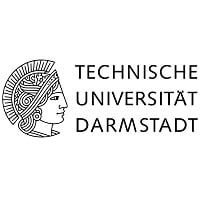Nanopore transport design and interfacing with biological systems
Position Details (PhD Research Project)
We are searching for a candidate interested in working on nanopore transport design and interfacing with biological systems. They will work on controlled and local copolymer functionalization of mesoporous films in collaboration with the research group of Prof. Szleifer at Northwestern University (USA). They will be experimentally implementing transient separation concepts based on fast gating conductive mesoporous ITO films within our DFG funded collaborative “Forschergruppe”. They will be implementing communicating nanopore reaction spaces using cascade reactions in mesoporous silica functionalized paper and cotton thread networks.
About Smart Membranes Group
We are an interdisciplinary, dynamic team searching for new nanoporous materials, manufacturing and functionalization methods to push the limits of nanopore transport with benefits in the areas of water management, sensor technology, and synthetic biology.
To enable chemical information processing between synthetic or biological compartments we aim to integrate synthetic nanopores into multicompartment systems to control molecular transport in time, and thus to design chemical information exchange between compartments. Compartments can be a reaction space in a microfluidic lab-on-chip device, or a biological cell reacting to a specific molecule. To design signaling pathways between such compartments, time-dependent, precisely controlled concentration-time profiles of signaling molecules are required. These molecules then trigger a response in the neighboring compartment. The concentration-time profile design in nanopore transport requires a precise nanopore fabrication, nanopore functionalization, e.g. using polymers, and nanopore device integration. We develop functionalized nanoscale porous ceramic materials allowing temporally controlled molecular transport or release. We aim to interface such nanoporous materials with biological cells or chemical reactions and to integrate them into compartments of microfluidic devices. Exemplary key words are: sol-gel chemistry, stimuli-responsive polymer grafting from, light-triggered release, additive manufacturing, nanoscale polymer writing, cyclic voltammetry, ellipsometry, fluorescence microscopy, nanopore transport gating.
Co-funded by the European Union
Before applying for the position through Applyindex, please thoroughly read the following link:
https://www.tu-darmstadt.de/graduate-school-lse/phd_program/funding/msca_cofund/msca_cofund.en.jsp



 Technical University of Darmstadt
Technical University of Darmstadt 